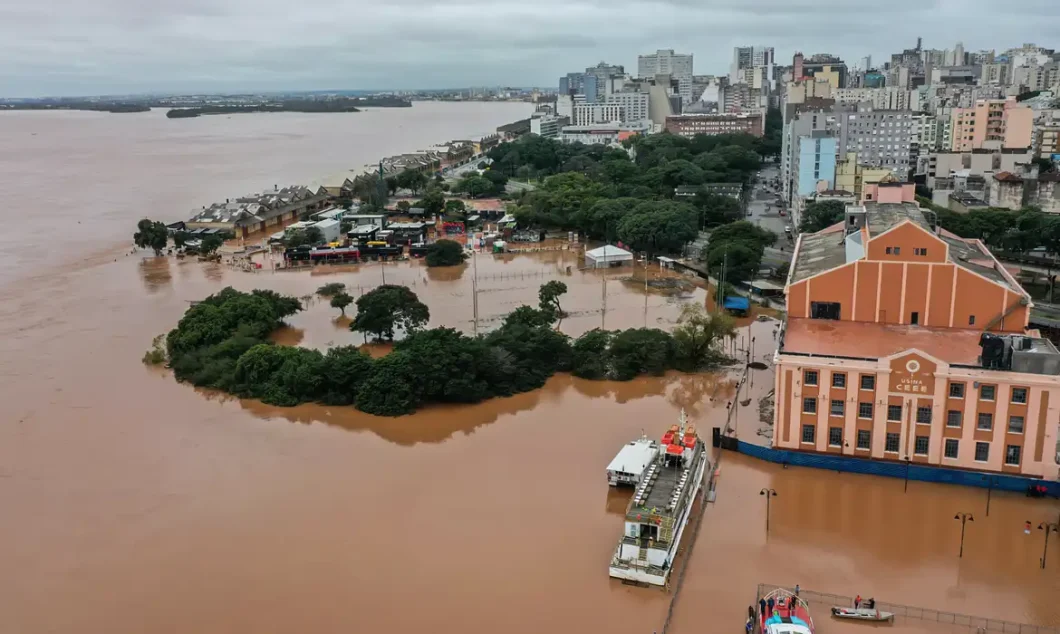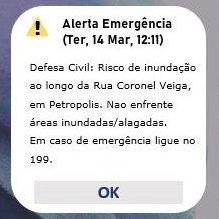
resume
- Brazil has still not implemented a modern disaster alert system via cell phone, such as Cell Broadcast, which would have increased effectiveness in countries such as the United States and Japan.
- This technology allows emerging alerts to be sent to cell phones in a specific area, even operating in a non-disruptive manner.
- Anatel has developed a disaster alert notification project, which will take place soon from December 2023 after 14 months of testing with operators, for effective use of the system in front. The lack of adequate training of public officials to operate the platform and the need for adjustments and finalizations of the project are significant bars.
- Currently, alerts are transmitted primarily via SMS, which require a prior telephone number and may not be received if the cell phone is issued undisturbed. The government also uses other services, like TV assassination notices and messages with messaging apps like WhatsApp and Instagram, which rely on data connectivity.
The tragic situation in Rio Grande Sur shows us the technology that can help ensure people are quickly informed in times of crisis. In this context, it is a question: why does Brazil not have a modern system for sending alerts via cellular? The Cell Broadcast channel is successfully used in countries like the United States and Japan. Here, not really, your implementation is at hand.
The Americans launched Amber Alert technology. The authorities can issue communications for a specific region and, with this, smartphones are transformed into green sirens. They apitam, acendem and emit an emergent message (mesmo qui estejam em modo Non Disturbe).
The Amber Alert was designed to notify moradores of the kidnapping of children in a specific locality. An idea that evolved to inform motorcycles and storms. Já no Japão, o chamado Alert J It is also used in other extreme climatic conditions.
Brazil project for Amber Alert
I looked at the theme of our last days, as at the sight of Orelha after seeing the situation of our compatriots in the South. Currently, the Civil Defense of each region is able to give notices by SMS – from the land registry number 40199. The issue is that as you know, normally text messages are sent when the device is in undisturbed mode. (except for what is required by a preliminary cadastro).
The next pass has been made. Anatel was a pioneer in launching the project of Notification of disaster alerts. The agency's superintendent of bond control, Gustavo Santana, explained to me that the system is in place soon starting in December 2023, after 14 months of exhaustive testing with telephone operators.


From the platform, public officials in the rescue zone (and special representatives of civil defense agencies) can detect the severity of the alert and its change, among other attributes, before disappearing or communicating. While operators receive instructions, determine which towers are in the area and broadcast communication over 4G networks and 5G. The consumer pays nothing for this.
Most cell phones manufactured as of 2020 contain the software necessary to receive and display alerts. This shouldn't be very difficult.
Why is it not used?
The next step is to use valiosa ferramentals, or those that are not considered. Those responsible for alerts, our various response organizations, must be trained to operate in the best possible way. It’s about demanding a national movement to make everything work like a number – fortunately likely – close to disaster.


No, when I consulted it, the Ministry of Integration and Regional Development informed me that the project “is in the adjustment and finalization phase”. You have a preview of the pilot phase of the system, but some data has been leaked.
The population is recommended to be attentive to other alert periods: although I cited an SMS, it also broadcast notices on television by assassination. A Defesa Civil do Rio Grande do Sul also popular apps: WhatsApp e Instagram. However, you may know that you need Internet with the Internet connection, as opposed to what is provided in cellular broadcasting.
During this time, we will monitor you with SMS alerts. There were 83 communications broadcast on April 27 in Rio Grande do Sul. According to the ministry, the action resulted in 9.6 million SMS messages.


